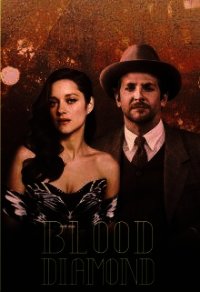Captain Blood - Sabatini Rafael (бесплатные книги онлайн без регистрации txt) 📗
He sought to temporize.
"Faith it will suit me very well," said he. "For Bridgewater is my destination, and but that ye detained me I'd have been on my way thither now."
"Your destination there will be the gaol."
"Ah, bah! Ye're surely joking!"
"There's a gallows for you if you prefer it. It's merely a question of now or later."
Rude hands seized Mr. Blood, and that precious lancet was in the case on the table out of reach. He twisted out of the grip of the dragoons, for he was strong and agile, but they closed with him again immediately, and bore him down. Pinning him to the round, they tied his wrists behind his back, then roughly pulled him to his feet again.
"Take him away," said Hobart shortly, and turned to issue his orders to the other waiting troopers. "Go search the house, from attic to cellar; then report to me here."
The soldiers trailed out by the door leading to the interior. Mr. Blood was thrust by his guards into the courtyard, where Pitt and Baynes already waited. From the threshold of the hall, he looked back at Captain Hobart, and his sapphire eyes were blazing. On his lips trembled a threat of what he would do to Hobart if he should happen to survive this business. Betimes he remembered that to utter it were probably to extinguish his chance of living to execute it. For to-day the King's men were masters in the West, and the West was regarded as enemy country, to be subjected to the worst horror of war by the victorious side. Here a captain of horse was for the moment lord of life and death.
Under the apple-trees in the orchard Mr. Blood and his companions in misfortune were made fast each to a trooper's stirrup leather. Then at the sharp order of the cornet, the little troop started for Bridgewater. As they set out there was the fullest confirmation of Mr. Blood's hideous assumption that to the dragoons this was a conquered enemy country. There were sounds of rending timbers, of furniture smashed and overthrown, the shouts and laughter of brutal men, to announce that this hunt for rebels was no more than a pretext for pillage and destruction. Finally above all other sounds came the piercing screams of a woman in acutest agony.
Baynes checked in his stride, and swung round writhing, his face ashen. As a consequence he was jerked from his feet by the rope that attached him to the stirrup leather, and he was dragged helplessly a yard or two before the trooper reined in, cursing him foully, and striking him with the flat of his sword.
It came to Mr. Blood, as he trudged forward under the laden apple-trees on that fragrant, delicious July morning, that man — as he had long suspected — was the vilest work of God, and that only a fool would set himself up as a healer of a species that was best exterminated.
Chapter III
THE LORD CHIEF JUSTICE
It was not until two months later — on the 19th of September, if you must have the actual date — that Peter Blood was brought to trial, upon a charge of high treason. We know that he was not guilty of this; but we need not doubt that he was quite capable of it by the time he was indicted. Those two months of inhuman, unspeakable imprisonment had moved his mind to a cold and deadly hatred of King James and his representatives. It says something for his fortitude that in all the circumstances he should still have had a mind at all. Yet, terrible as was the position of this entirely innocent man, he had cause for thankfulness on two counts. The first of these was that he should have been brought to trial at all; the second, that his trial took place on the date named, and not a day earlier. In the very delay which exacerbated him lay — although he did not realize it — his only chance of avoiding the gallows.
Easily, but for the favour of Fortune, he might have been one of those haled, on the morrow of the battle, more or less haphazard from the overflowing gaol at Bridgewater to be summarily hanged in the market-place by the bloodthirsty Colonel Kirke. There was about the Colonel of the Tangiers Regiment a deadly despatch which might have disposed in like fashion of all those prisoners, numerous as they were, but for the vigorous intervention of Bishop Mews, which put an end to the drumhead courts-martial.
Even so, in that first week after Sedgemoor, Kirke and Feversham contrived between them to put to death over a hundred men after a trial so summary as to be no trial at all. They required human freights for the gibbets with which they were planting the countryside, and they little cared how they procured them or what innocent lives they took. What, after all, was the life of a clod? The executioners were kept busy with rope and chopper and cauldrons of pitch. I spare you the details of that nauseating picture. It is, after all, with the fate of Peter Blood that we are concerned rather than with that of the Monmouth rebels.
He survived to be included in one of those melancholy droves of prisoners who, chained in pairs, were marched from Bridgewater to Taunton. Those who were too sorely wounded to march were conveyed in carts, into which they were brutally crowded, their wounds undressed and festering. Many were fortunate enough to die upon the way. When Blood insisted upon his right to exercise his art so as to relieve some of this suffering, he was accounted importunate and threatened with a flogging. If he had one regret now it was that he had not been out with Monmouth. That, of course, was illogical; but you can hardly expect logic from a man in his position.
His chain companion on that dreadful march was the same Jeremy Pitt who had been the agent of his present misfortunes. The young shipmaster had remained his close companion after their common arrest. Hence, fortuitously, had they been chained together in the crowded prison, where they were almost suffocated by the heat and the stench during those days of July, August, and September.
Scraps of news filtered into the gaol from the outside world. Some may have been deliberately allowed to penetrate. Of these was the tale of Monmouth's execution. It created profoundest dismay amongst those men who were suffering for the Duke and for the religious cause he had professed to champion. Many refused utterly to believe it. A wild story began to circulate that a man resembling Monmouth had offered himself up in the Duke's stead, and that Monmouth survived to come again in glory to deliver Zion and make war upon Babylon.
Mr. Blood heard that tale with the same indifference with which he had received the news of Monmouth's death. But one shameful thing he heard in connection with this which left him not quite so unmoved, and served to nourish the contempt he was forming for King James. His Majesty had consented to see Monmouth. To have done so unless he intended to pardon him was a thing execrable and damnable beyond belief; for the only other object in granting that interview could be the evilly mean satisfaction of spurning the abject penitence of his unfortunate nephew.
Later they heard that Lord Grey, who after the Duke — indeed, perhaps, before him — was the main leader of the rebellion, had purchased his own pardon for forty thousand pounds. Peter Blood found this of a piece with the rest. His contempt for King James blazed out at last.
"Why, here's a filthy mean creature to sit on a throne. If I had known as much of him before as I know to-day, I don't doubt I should have given cause to be where I am now." And then on a sudden thought: "And where will Lord Gildoy be, do you suppose?" he asked.
Young Pitt, whom he addressed, turned towards him a face from which the ruddy tan of the sea had faded almost completely during those months of captivity. His grey eyes were round and questioning. Blood answered him.




